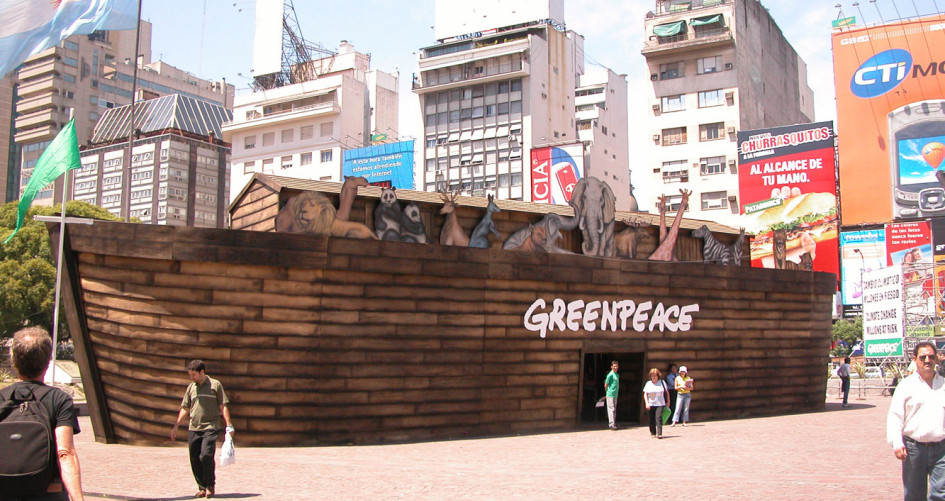Another section of the exhibition is dedicated to the role civil society plays in the negotiation process. Government delegates are joined by scores of observers (non-state actors), including non -governmental organizations (NGOs), UN agencies, International bodies and Indigenous peoples organizations. The growing recognition of the climate change threat has motivated more and more people to engage with the international response.
Credit: Photo by IISD/ENB (www.iisd.ca)
In the climate change process, only governments can negotiate and take decisions. However, so-called “observers” – non-state actors, such as businesses, city officials or environmental NGOs – play a critical role as the eyes, ears and conscience of the outside world. These observers do much more than observe – they variously campaign for strong ambition, develop innovative ideas, drive climate action on the ground, present the viewpoints of specific stakeholders, and generally mirror the diverse human landscape upon which the battle against climate change must be fought. Over the years, participation in the climate change negotiations by non-state actors has increased dramatically and broadened out to new groups.
Credit: Photo by IISD/ENB (www.iisd.ca)
An important avenue for non-state actors to input to the climate debate is through side events – debates, presentations, workshops and other gatherings held alongside the formal negotiations. UN agencies, intergovernmental organisations and sometimes even governments also organize side events to discuss key topics. Many observers also showcase their climate activities with colourful exhibits dotted throughout the conference centre. Side events have become increasingly popular over the history of the negotiations; 90 were held at the 1997 Kyoto Conference, with 120 at The Hague Conference in 2000, and over 200 at both the Paris Conference in 2015 and the Marrakech Conference in 2016.

